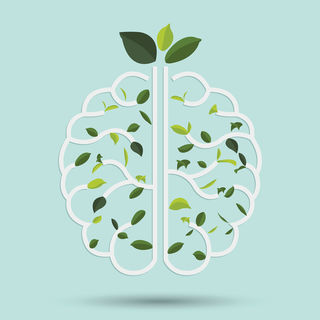Memory
5 Proven Tips to Quickly Boost Your Memory
Learn science-backed strategies to strengthen your memory now and in the future.
Posted January 11, 2019

The search for substances that improve cognitive function —or “nootropics”—has surged over the last several years as consumers strive to enhance their attention, memory, and daily productivity. By 2024, the global market for such “smart drugs” is expected to grow to more than six billion dollars. However, many people are surprised to learn that scientifically supported methods to enhance cognitive functioning are not found in a supplement or a potion, but rather through the use of common, free strategies.
Whether you want to more consistently maximize your daily memory skills or feel sharper at a specific upcoming event, consider experimenting with some of the following strategies that have been shown to quickly enhance memory functioning, sometimes in minutes to hours:
Tip 1: Learn new information directly before or directly after cardiovascular exercise. While the long-term benefit of cardiovascular exercise in reducing the risk of Alzheimer’s is powerful, the immediate cognitive benefit is also quite strong. However, it is also surprisingly time-dependent. Multiple studies show that moderate to high intensity cardiovascular exercise performed directly before or directly after learning new information enhanced the ability to recall that information later (whereas waiting even one hour to exercise after learning new information did not enhance recall). The positive impact of exercise on memory was present even after only 15 minutes of exercise.
Tip 2: Minimize media-multitasking. Multiple recent studies show that media-multitaskers who frequently switch between media sources (e.g., television, phone, texting, radio, print media, games) have poorer immediate attention and memory than those who do not. Media-multitaskers also have greater difficulty sustaining attention and determining the relevance of information, which impairs long-term memory. Try reducing your exposure to multiple media sources, perhaps by checking the phone only at predetermined intervals (e.g., every hour), turning off text and email alerts, turning off the television or radio while completing other tasks, and minimizing other disruptions that frequently distract you.
Tip 3: Sleep on it! Good quality sleep is important not only in minimizing the risk of Alzheimer’s, but also in consolidating and packaging newly-learned information. Indeed, some researchers now theorize that sleep is more important for optimizing memory consolidation than our waking hours! Multiple stages of sleep are vital to memory recall: Slow-wave sleep is important for reactivating newly-learned information and packaging it for long-term memory, whereas rapid-eye-movement (REM sleep) appears to stabilize and strengthen newly-packaged memories. If sleep is a concern, there are several tips available to assist in maximizing sleep quality.
Tip 4: Piggyback new information on known information. Our success in remembering new information is directly related to how efficiently we initially learn it. Linking new information to known information is a powerful, rapid technique that allows you to simply add to information you have already stored in your brain, like adding a branch to an existing tree. So instead of the time-consuming process of creating a new neuronal circuit to store recently learned information, you simply add it to a neuronal circuit you previously created. For example, if you meet a new person named Joe, link him to another “Joe” you know, and then rehearse/repeat that information to strengthen the new memory. Every time you rehearse information, you activate and strengthen the neuronal circuit in your brain that has stored that information, making it easier to remember next time.
Tip 5: Reduce stress. Many people experience increased mental fogginess when feeling stressed. In addition to the distraction that often occurs in stressful situations (which steals attention from to-be-learned information), the stress hormone cortisol has been shown to impair the ability to recall new memories. Stress-reduction strategies can be very helpful in optimizing daily memory skills, and are key for long-term brain health and reducing the risk of Alzheimer’s.
You may have noticed that there are no dietary strategies provided. This is because although there is strong support for a brain healthy diet in optimizing long-term brain health and reducing the risk of Alzheimer’s, there is conflicting information about the role of macronutrients such as protein, carbohydrates, and glucose on immediate cognitive functioning. Perhaps surprisingly, there is even conflicting information about whether caffeine is helpful in optimizing short-term cognitive functioning (though modest caffeine consumption is associated with better long-term brain health).
Be sure to discuss any potential changes to your diet or exercise plan with your healthcare provider to see if they are right for you. By experimenting with the tips above (and personalizing them to fit your life), you may notice that your daily memory is sharper and clearer. The rapid responsiveness of our brain to our behavior is awe-inspiring, and allows us to directly alter not only our immediate memory skills, but also our brain health for years to come.
References
Ackermann, S., Hartmann, F., Papassotiropoulos, A., deQuervain, D.J.F. & Rasch, B. (2013). Associations between Basal Cortisol Levels and Memory Retrieval in Healthy Young Individuals. Journal of Cognitive Neuroscience, 25, 1896-1907.
Rasch, B. & Born J. (2013). About Sleep's Role in Memory. Physiological Reviews, 93, 681-766.
Roig, M., Thomas, R., Mange, C.S., Snow, N.J., Ostadan, F., Boyd, L.A., & Lundbye-Jensen, J. (2016). Time-Dependent Effects of Cardiovascular Exercise on Memory. Exercise and Sport Science Reviews, 44, 81-88.
Uncapher, M.R., Thieu, M.K., & Wagner, A.D. (2016). Media multitasking and memory: Differences in working memory and long-term memory. Psychonomic Bulletin & Review, 23, 483-490.
Uncapher, M.R., Thieu, M.K., & Wagner, A.D. (2018). Minds and brains of media multitaskers: Current findings and future directions. Proceedings of the National Academy of Sciences ,40, 9889-9896.
Wahl, D. Cogger, V.C., Solon-Biet, S.M., Waern R.V., Gokam, R., et al. (2016). Nutritional strategies to optimise cognitive function in the aging brain. Ageing Research Reviews, 31, 80-92.


